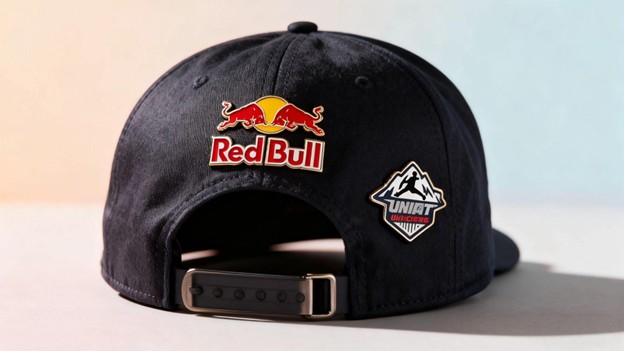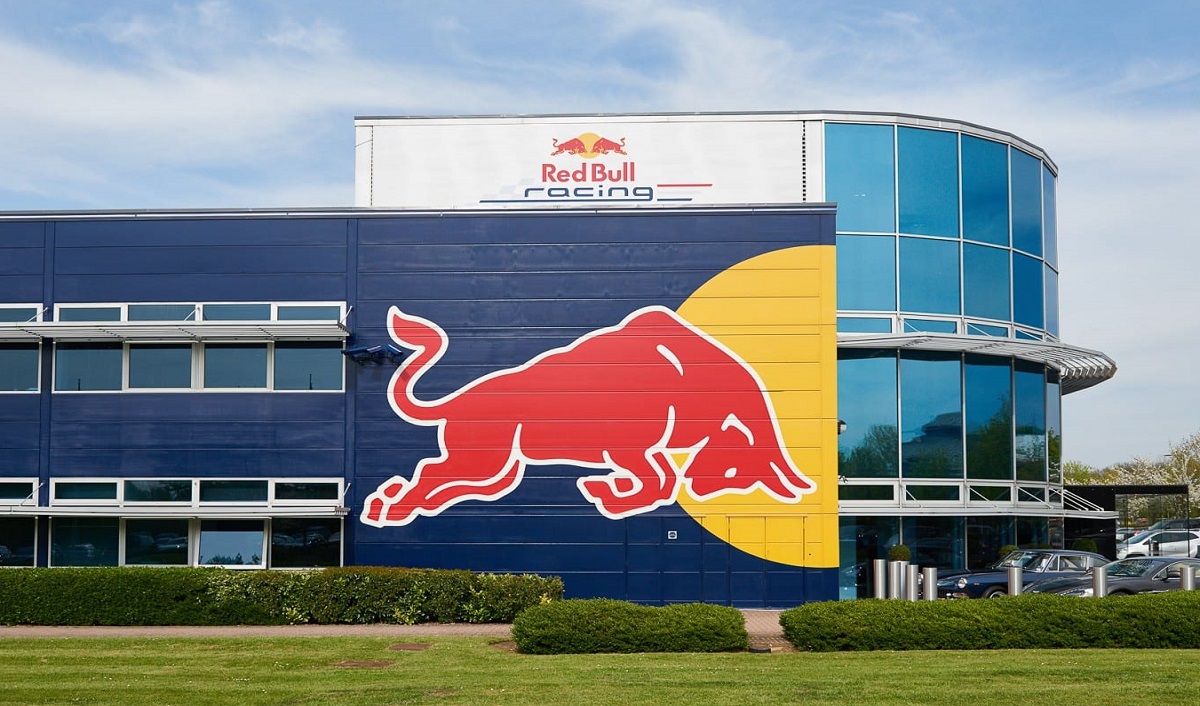In a fast-paced world where energy and vitality are paramount, Red Bull has emerged as a global icon, revolutionizing the beverage industry and transcending the confines of traditional refreshments. Since its inception in 1987, this Austrian-born energy drink has captivated millions, capturing hearts and minds with its signature blend of invigorating taste and revitalizing properties. Red Bull’s meteoric rise to prominence and unwavering popularity can be attributed to its innovative marketing strategies, unwavering commitment to quality, and a relentless pursuit of pushing boundaries. In this article, we’ll delve deeper into the origins and the glorious history of this iconic energy drink.
At the core of Red Bull’s appeal lies its unique formula, ingeniously crafted to provide an unparalleled energy boost. Combining a refreshing carbonated base with a proprietary blend of high-quality ingredients, including caffeine, taurine, B-vitamins, and a touch of sugar, Red Bull stimulates both the body and mind, delivering an instantaneous surge of vitality. This distinctive composition not only provides an immediate pick-me-up but also enhances focus, endurance, and overall cognitive performance, making Red Bull the go-to beverage for those seeking an extra edge in their daily lives.
However, Red Bull’s success extends far beyond its invigorating properties. A key factor in its dominance is the brand’s unparalleled marketing prowess, which has forever changed the landscape of advertising. Red Bull’s audacious and boundary-pushing campaigns have become legendary, captivating audiences through a series of high-adrenaline stunts and sporting events. From Felix Baumgartner’s record-breaking supersonic skydive to the daring Red Bull Stratos mission, the brand’s ability to seamlessly intertwine extreme sports and its energy drink has captivated the imagination of millions worldwide.
Red Bull’s commitment to fostering a sense of community and camaraderie among its consumers has also played a significant role in its ascent to the pinnacle of the energy drink market. Through its extensive sponsorship of extreme sports, music festivals, and other high-energy events, Red Bull has become synonymous with adventure, excitement, and a boundless zest for life. By aligning itself with these dynamic subcultures, the brand has cultivated a loyal following that transcends traditional marketing boundaries, creating a distinct lifestyle brand that resonates deeply with its target audience.
Moreover, Red Bull’s unwavering dedication to quality control and product innovation has contributed to its enduring success. With a meticulous focus on sourcing the finest ingredients and adhering to strict manufacturing standards, the brand ensures that each can of Red Bull consistently delivers the same invigorating experience. Furthermore, Red Bull has expanded its product line to cater to evolving consumer preferences, offering sugar-free and zero-calorie options, thereby accommodating those who seek a healthier energy drink alternative.
In this article, we will delve deeper into the captivating world of Red Bull, exploring the brand’s origins, the science behind its invigorating formula, and the groundbreaking marketing campaigns that have propelled it to international stardom. We will also examine the cultural impact of Red Bull and the legacy it has established as a trailblazer in the beverage industry.
Red Bull’s journey from a local Austrian drink to a global phenomenon is a testament to its ability to redefine the boundaries of the energy drink market. With its distinct flavor, unwavering energy boost, and a brand image synonymous with adventure and vitality, Red Bull continues to inspire and energize millions, transcending mere refreshment to become a lifestyle choice for those seeking to push their limits and embrace a life without limits.
Origins of Red Bull – History & Founding Story
The history of Red Bull is a captivating tale of entrepreneurship, innovation, and strategic marketing that has propelled the brand from its humble Austrian origins to become a global powerhouse in the beverage industry. Let’s take a journey back in time to explore the intriguing story behind Red Bull’s rise to prominence.
It all began in the 1970s when an Austrian entrepreneur named Dietrich Mateschitz encountered a popular energy drink called Krating Daeng during a business trip to Thailand. The drink, formulated by Chaleo Yoovidhya, a Thai businessman, caught Mateschitz’s attention due to its energizing properties. Inspired by the potential of such a product, Mateschitz recognized an opportunity to introduce a similar concept to the Western market.

Intrigued by the idea, Mateschitz joined forces with Chaleo Yoovidhya to adapt and refine the Thai energy drink formula for a global audience. Their collaboration led to the creation of Red Bull GmbH in 1984, with Mateschitz serving as the company’s managing director and Yoovidhya as its co-founder and shareholder.
After extensive research and development, the duo launched Red Bull Energy Drink in Austria in 1987. The brand’s name was derived from the Thai phrase “krating daeng,” which translates to “red bull” in English. The choice of the name was strategic, aiming to convey the idea of power, strength, and vitality associated with the image of a bull.
Red Bull’s introduction to the Austrian market was met with skepticism. Energy drinks were a relatively new concept at the time, and consumers were hesitant to embrace an unconventional beverage that promised to enhance performance and combat fatigue. However, Mateschitz and his team were undeterred and set out to revolutionize the way energy drinks were perceived and consumed.
Especially in some adventurous and exciting extreme sports events, we can see the iconic Red Bull logo. For those young people who love outdoor and extreme sports, Red Bull is no longer just a beverage brand, but an honor. Being sponsored by Red Bull means recognition of one’s own strength.
Therefore, the Red Bull logo is not just a corporate logo, but a spirit of adventure. People carry patches, keychains, or stickers with the Red Bull logo on them to express their spirit of pursuing the limit. They can even custom enamel pins and buckle them on clothes, backpacks, or hats, making them a sports accessory to wear around. Either way, it represents love and allows people to constantly challenge themselves and surpass themselves. GSJJ’s extreme sports pins are of high quality and can be produced quickly and custom-made for you.

The key to Red Bull’s success lay in its pioneering marketing strategies. Mateschitz understood the importance of creating a distinct brand identity and targeting a specific demographic. Red Bull positioned itself as a premium product, strategically associating itself with extreme sports, adrenaline-fueled activities, and a fast-paced lifestyle. By sponsoring events and athletes in disciplines such as Formula 1 racing, snowboarding, and skateboarding, Red Bull effectively captured the attention of its target audience – young, adventurous individuals seeking an extra boost of energy.
In 1987, Red Bull expanded beyond Austria and entered the neighboring markets of Hungary and Slovenia. The brand’s initial success in these countries paved the way for further international expansion. Red Bull reached out to potential partners worldwide, seeking local distributors to introduce the drink in new markets.
The breakthrough for Red Bull came in 1992 when the brand entered Germany, a highly competitive and influential market. To build awareness and generate buzz, Red Bull employed unconventional marketing techniques, including utilizing a fleet of branded cars to distribute free samples, organizing high-energy events, and partnering with popular nightclubs. This grassroots approach, coupled with the drink’s energizing properties, struck a chord with consumers and propelled Red Bull to meteoric success.
Following its triumph in Germany, Red Bull continued to conquer new territories, gradually expanding its presence across Europe, North America, and Asia. By the early 2000s, Red Bull had established a dominant global presence, cementing its status as the world’s leading energy drink brand.
Red Bull’s success story extends beyond its signature energy drink. The brand has diversified its product portfolio over the years, introducing variations such as Red Bull Sugarfree, Red Bull Zero, and specialized editions with unique flavors. Additionally, Red Bull extended its reach by venturing into other sectors, including the creation of Red Bull Media House, which produces films, documentaries, and multimedia content, further amplifying the brand’s cultural impact.
Today, Red Bull is a ubiquitous presence, found on store shelves, in bars, and at sporting events across the globe. Its distinctive blue and silver cans have become instantly recognizable symbols of energy and vitality. The brand’s continued success can be attributed to its unwavering commitment to quality, relentless pursuit of innovation, and the ability to engage consumers through adventurous marketing campaigns.
As Red Bull continues to evolve and push the boundaries of the beverage industry, its journey remains an inspiration for entrepreneurs and marketers alike. From its humble beginnings in Austria to its global dominance, Red Bull’s story serves as a testament to the power of innovation, strategic branding, and the ability to tap into the aspirations of a dynamic and energy-driven world.
Also Read: Marketing Strategies and Marketing Mix of Red Bull
To read more content like this, subscribe to our newsletter




